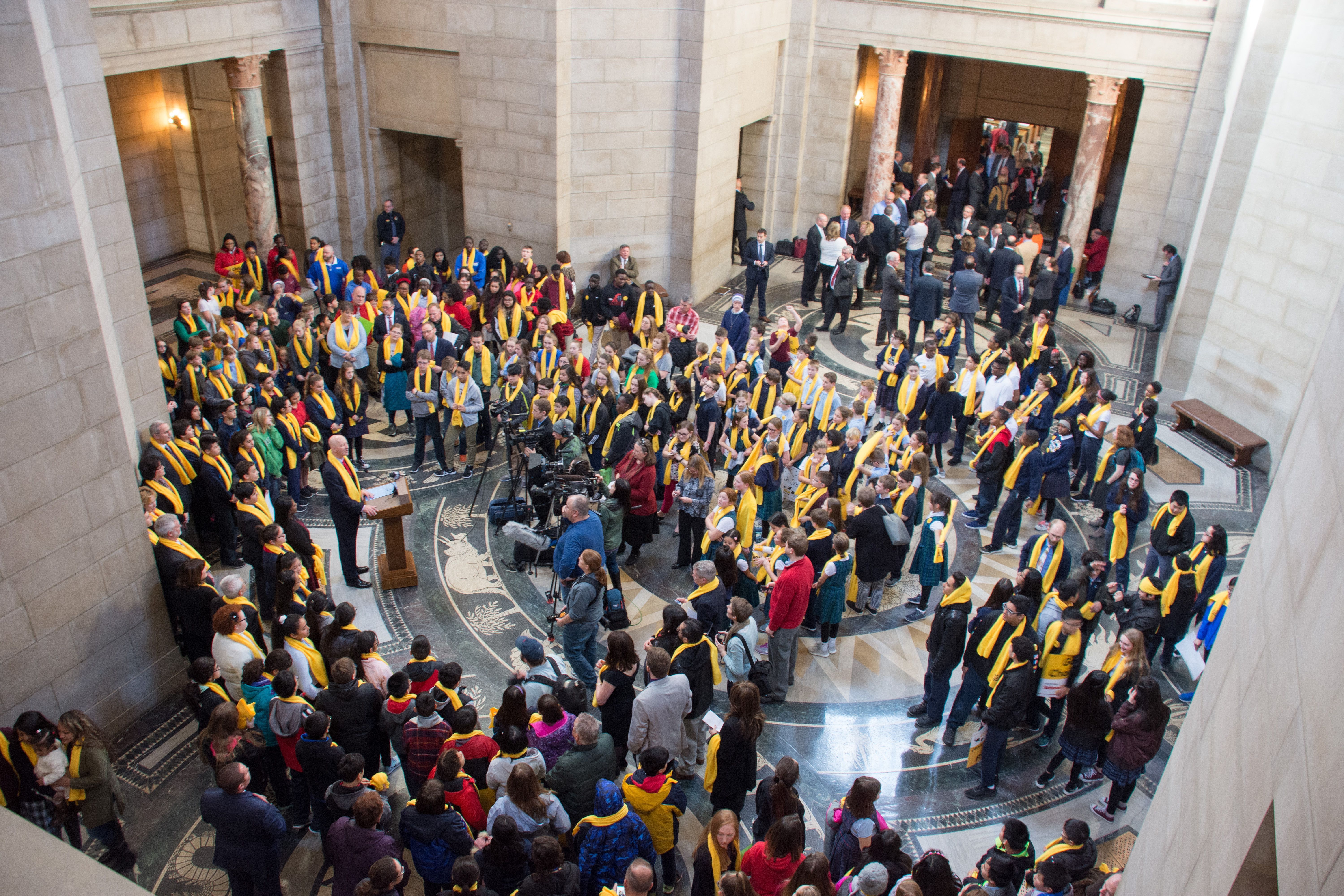State senators have been going hard with all-day debate for more than a month, and they have about a month of sustained effort remaining. Just last week, senators were debating bills on cutting the inheritance tax, limiting increases to the state minimum wage, banning certain types of cannibinoids, and clarifying how “good time” sentencing is calculated for those serving in city or county jails, among many other issues. But this week, the Nebraska Legislature has been tackling the statewide biennial budget.
In each odd-numbered year (or the first year of the Legislature’s two-year session), state senators focus on developing the statewide budget. Back in January, the governor proposed his own version of what he thinks the statewide budget should look like. The Appropriations Committee then did an extensive review of his budget proposal. Part of this process included holding public hearings to invite feedback on the governor’s proposed budget. Those hearings covered every conceivable agency of government and included feedback from countless Nebraskans.
Based on the feedback, last week the Appropriations Committee advanced its version of the statewide budget. The budget proposes $5.5 billion of spending in each of the next two fiscal years (it takes a lot of money to run the state of Nebraska!).
This year, the Appropriations Committee had to develop the budget in light of significant revenue shortfalls. At the beginning of session, the committee was anticipating some $400 million in revenue shortfalls. While the final figure was not quite as much, the revenue shortfalls are still significant. This means cutting spending and finding other revenue sources, such as cash funds the Legislature has stored up for other purposes.
If you are interested in reviewing the full 175-page budget proposal, you can review it at www.NebraskaLegislature.gov. Just look up LB261 in the “bill search” function. On the homepage of the Unicameral’s website, you can also find a budget book that provides an extensive overview of all the spending across agencies and programs. (By the time you read this article, the budget will have advanced to second round of debate, so you’ll also want to check out what changes—if any—were made to the budget during first round of debate.) Another place for up-to-date information on the budget is the Unicameral Update publication at www.Update.Legislature.Ne.Gov.
Protecting kids online
In other news, state senators recently advanced another bill to protect kids from predatory online social media platforms. LB383, introduced by Senator Tanya Storer, would require social media platforms to get parental permission before minors can create accounts. LB383 would help shield youth from harmful online content, including AI-generated pornography, and restore parental authority in guiding their children’s online presence.
We have gotten involved in several social media bills this session, not just because rates of depression and anxiety are skyrocketing among teenagers, but because of something even more fundamental. As good as technology can be, the quickly rising rates of depression and anxiety raise questions about technology’s effect on human dignity.
The human person is fundamentally social and relational. We are born into the world, thick with relational ties that we need in order to fully develop. These relational ties protect, guide and influence our whole lives, but especially when we are young. They help us make sense of ourselves, of others, and of this world. The people with whom we have these ties teach us over time who we are and how to navigate dangers, opportunities, and relationships with skill and attention.
The online world is a largely unregulated environment, artificially free of familiar social ties and guidance, all of which informs us who we are, how we see ourselves, who we think others are, and how we see them.
In short, technology is formative, for better or for worse, and too often for our young people, it is for the worse. Bills like LB383 help to regulate that online world to avoid high levels of harm and risk in the development of a person’s sense of self and relationship with others.
Hopefully, the limits in LB383 help to maintain a healthier sense of our human dignity and what we were made for, rather than having those central aspects of ourselves being malformed by technology companies seeking to malform us for the sake of profits.

